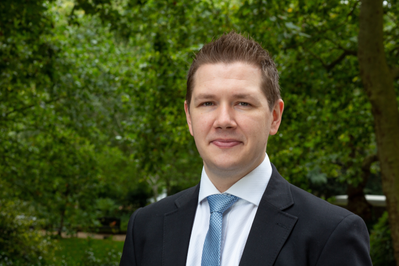Jack Meek

Tell us about your background and why you decided to become a barrister.
The happy ever after is a work in progress, but once upon a time, in a town (in)famous during the Northern Ireland Troubles for all the wrong reasons, I made my entrance and have not stopped arguing since. My parents and maternal grandparents always encouraged open debate about current affairs at home, together with respect for others’ opinions. However, given the political climate, my siblings and I were cautioned to beware what we said in public. This strained against every sinew of my instincts, and so I resolved to do something which gave me a platform to advocate on the issues about which I most cared. The Bar was a natural fit.
Did you face any obstacles along your journey to becoming a barrister and how did you overcome them? Have any of them persisted since becoming a barrister?
Our household struggled financially. I was also the first to go to university – Queen’s University Belfast – though my academic strength, developed and encouraged at my state school helped instil self-confidence.
Although I earned extra academic and professional qualifications and a wealth of practical legal experience, it took six years, well over one hundred applications and perhaps a couple of dozen interviews before I was finally offered pupillage.
Whether fair or not, I often wondered whether I was judged too harshly based on my educational background or because of the way I sounded. Obviously, there are many talented candidates across the board, but go onto any number of chambers’ websites and you are certain to find a preponderance of practitioners from “traditional” backgrounds.
I am sure sheer stubbornness helped me succeed. Once you get your foot in the door, your toehold will be very difficult to dislodge, even if a degree of imposter syndrome (which is very widespread) persists.
What opportunities, support and encouragement did you receive along your journey to becoming a barrister?
I was awarded a Bar course scholarship from Manchester Metropolitan University and a European Court of Human Rights scholarship from Lincoln’s Inn. My Inn has continued to support me, for example through its commendable pupils’ mentorship scheme.
I am grateful too to all who provided insight during mini-pupillages and encouragement at work, particularly my former colleagues at Thomson Reuters Practical Law.
Most importantly, I have been blessed with a loving family and good friends. My wife will never truly know how grateful I am for all she has done to support me and keep me level-headed.
What is the most rewarding thing about being a barrister; has life at the Bar met your expectations?
The most rewarding thing is when, through your own diligent research, you are able coherently and persuasively to answer a particularly knotty legal problem. It reminds you of the privilege of being part of a profession where others rely on you for your specialist expertise. On that count, my expectations have been met.
How do you use your experience of coming to the Bar from an under-represented background to support those seeking to do the same, and/or why is it important for barristers to contribute in this way?
I mentor a gifted young first-generation graduate from my alma mater, Queen’s University Belfast, by working with her on applications, interview preparation and otherwise lending a supportive ear. I also meet with a wider range of students, whether by speaking at student events, judging mooting workshops and competitions, offering to review CVs and applications, or making myself available to arrange one-to-one chats.
I think it is important not to lose sight of the challenges I faced at the dawn of my legal career. Many prospective candidates simply have no one else to answer their questions, and it should not be too onerous to provide a few words in response.
How do you think the challenges around social mobility at the Bar which face aspiring barristers today could be addressed?
Pupillage applications should initially be anonymised and, beyond confirming that the requisite academic threshold is satisfied, educational details should be redacted.
Every applicant deserves feedback. Given time constraints, it need not be overly detailed, but a letter simply saying “you have been unsuccessful” is not useful. At the very least, rejection by silence should be entirely discouraged. The recruitment process should be transparent.
Listen and engage. It can mean an awful lot to those who simply need someone to hear them out.
What advice would you give to someone from an under-represented background, seeking to succeed at the Bar?
I’d like to pilfer a phrase (or variation thereof) which President Biden attributes to his mother: “You’re no better than anyone else, and no one else is better than you.”
Jack Meek is a barrister at Cabinet Office Europe Legal Advisers, currently completing the second year of the Government Legal Department’s legal trainee scheme.